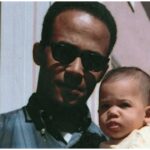Pioneering Telehealth for Autism and ADHD
Dr. Hokehe Eko, a Board-Certified Pediatrician, Integrative Medicine specialist, and mother of three, has made history by launching Glow Pediatrics – the first Black-owned virtual autism clinic for kids in the United States.
Addressing the Nationwide Delay in Autism Evaluations
Families in Georgia, Oklahoma, and Maryland can now access autism consultations through Dr. Eko’s groundbreaking telehealth platform, with plans to expand nationwide later this year.
Glow Pediatrics offers no-wait autism and ADHD evaluations, a significant relief for thousands of families facing extended wait times.
“Early diagnosis and intervention are key to treatment and better outcomes for children, giving them the best chance at developing to their full potential, so it was important for me to do my part to solve this issue by offering quality care to children regardless of location,” Eko explained.
Providing Timely Care and Support
On average, Glow Physicians see patients in less than one week, a stark contrast to the national average wait time of 27 months. This expedited access to care has already made a profound impact on families like Kimberly Johnson’s from Oklahoma.
“Parents need to know there are options out there and not to give up,” Johnson said. “That diagnosis is a big deal. It opens up so much for your child for resources to support their needs and gives parents a sense of direction.”
A Holistic Approach to Child Development
With over 10 years of experience working with children of all ages, including those on the autism spectrum, Dr. Eko brings a wealth of expertise to her virtual clinic.
She completed training to conduct autism diagnostic evaluations using the CARS standardized test and is well-equipped to differentiate between neurotypical and neuroatypical behaviors.
“As a result of my experience, I am better able to differentiate between neuro-typical and neuro-atypical behaviors, and can also help identify if there are other factors at play, such as ADHD, depression, anxiety, OCD, intellectual delays, or other medical conditions,” she said on her website.





